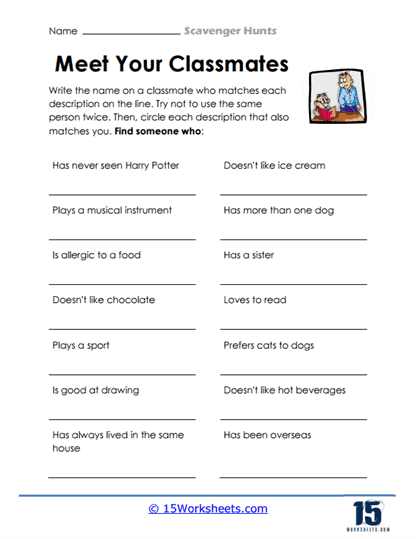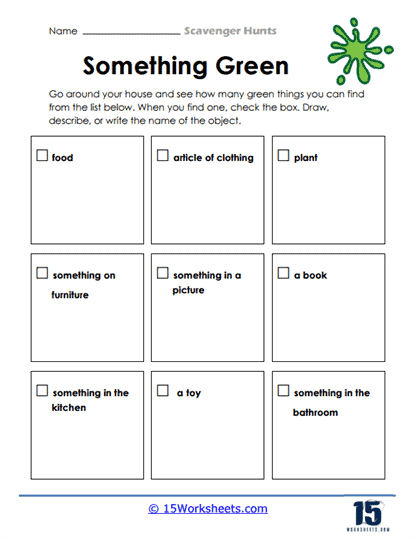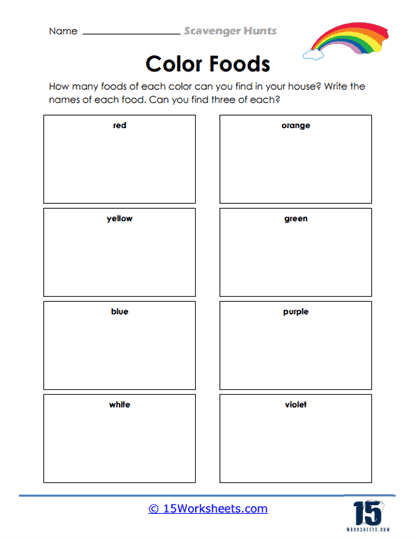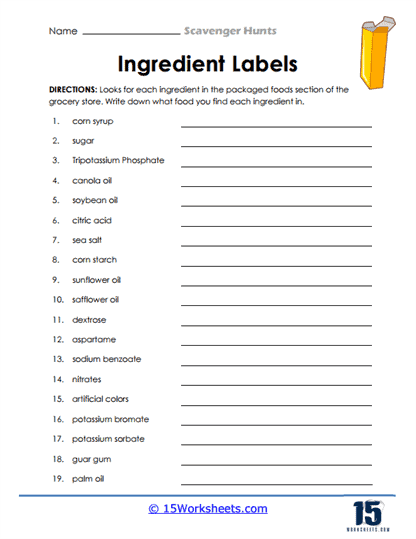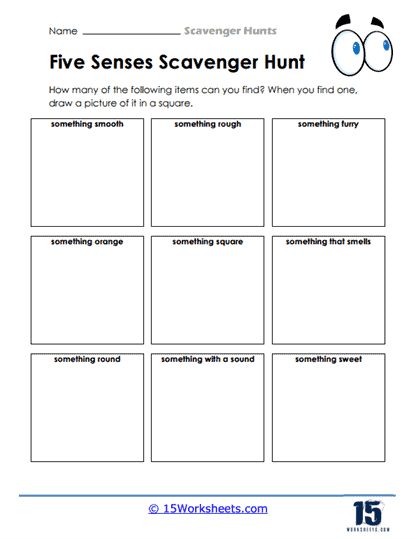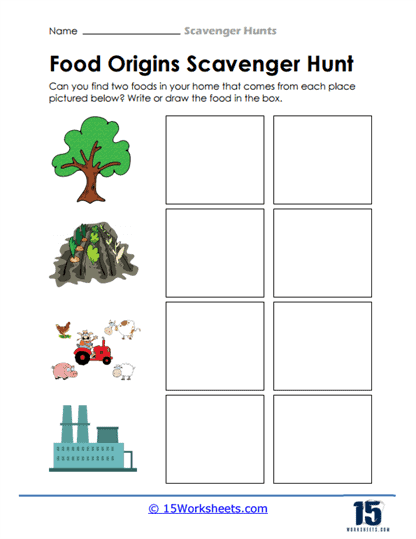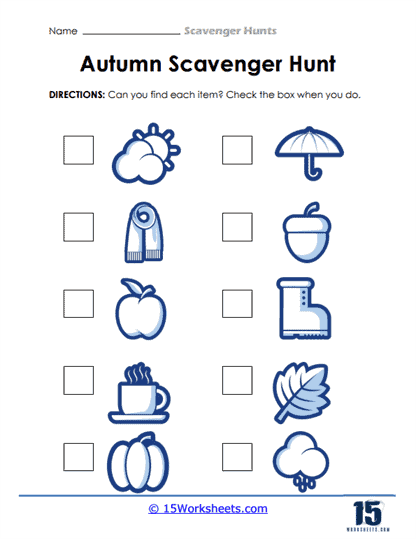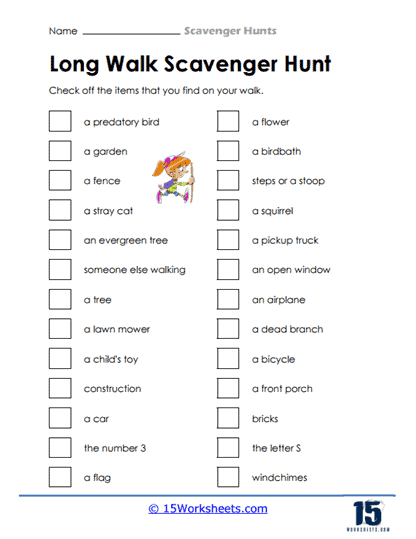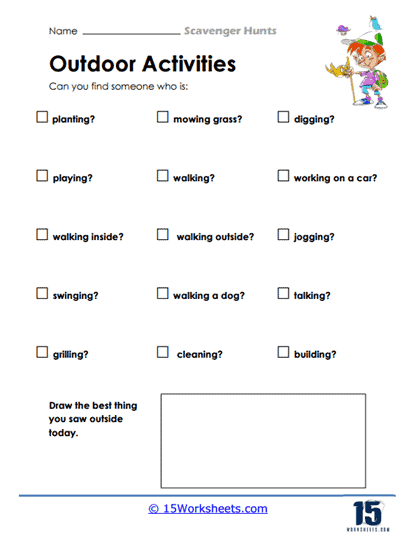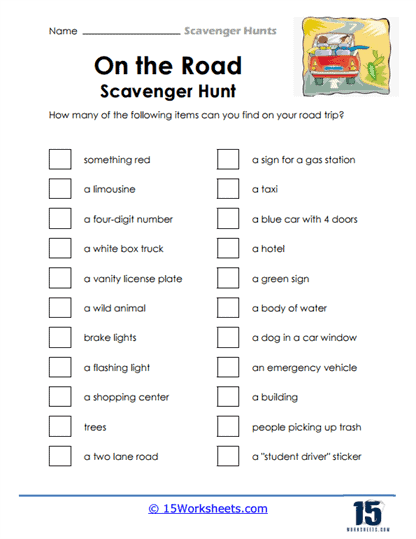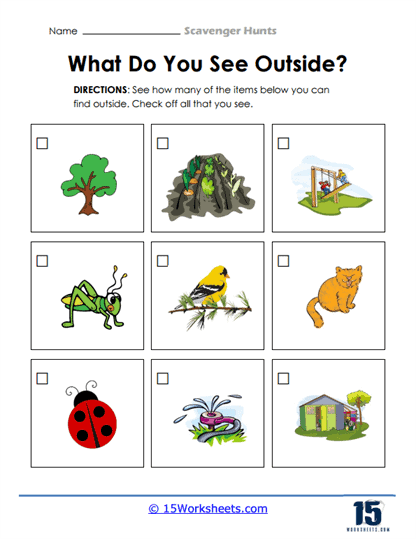Scavenger Hunts Worksheets
All About These 15 Worksheets
This series of 15 worksheets on Scavenger Hunts offers students an interactive and engaging way to explore their surroundings, develop observational skills, and learn about various topics. Scavenger hunts encourage active participation, critical thinking, and problem-solving abilities as they search for specific items, observe their environment, and complete tasks.
These worksheets cover a wide range of scavenger hunt themes, including getting to know classmates, exploring the local community, identifying signs of life, discovering nature, and investigating food-related topics. By engaging with these worksheets, students can enhance their knowledge, foster curiosity, and enjoy the excitement of the scavenger hunt experience. Through these worksheets, students will:
- Understand the simple mechanics of scavenger hunts;
- Get to know their classmates or peers and build a sense of community through a game of scavenger hunt;
- Observe and appreciate their surroundings while learning about the history and significance of their local community;
- Document signs of life in their environment, promoting awareness of the natural world;
- And be engaged in a sensory exploration of their environment.
This series of worksheets on Scavenger Hunts offers students an exciting and interactive way to explore their surroundings, engage with different topics, and develop essential skills. By engaging with these worksheets, they can enhance their observation skills, critical thinking abilities, and knowledge across a range of subjects.
Scavenger hunts provide a hands-on approach to learning, allowing students to actively participate and discover new information in a fun and engaging manner. Overall, these worksheets encourage curiosity, promote exploration, and foster a deeper connection with the world around them.
What Are Scavenger Hunts?
Scavenger hunts are engaging and entertaining activities in which participants search for specific items, solve puzzles, or complete tasks provided in a list. These items or tasks can be hidden in a designated area, given as clues or riddles, or require interaction with other people. Scavenger hunts are often played in teams, promoting collaboration, problem-solving, and communication among participants.
Scavenger hunts can be adapted for various settings, such as parties, team-building events, educational activities, or community gatherings. They can also be tailored to different age groups and interests, making them a versatile and fun activity for all ages.
There are several types of scavenger hunts, including:
Traditional Scavenger Hunts
Participants are given a list of items to find within a designated area, like a park or neighborhood. The first team to collect all items or the team with the most items found within a set time limit wins.
Photo Scavenger Hunt
Instead of collecting physical items, participants are required to take photos of specific objects, landmarks, or scenarios. This type of scavenger hunt is particularly popular with the widespread use of smartphones and digital cameras.
Riddle-based Scavenger Hunt
Participants must solve riddles or puzzles to determine the items or locations they need to find. This type of scavenger hunt encourages critical thinking and problem-solving skills.
Task-based Scavenger Hunt
In this version, participants must complete various tasks or challenges, such as performing a specific action or interacting with certain people. These tasks can be designed to promote teamwork, creativity, or social skills.
Scavenger hunts can be an exciting and educational way to explore new environments, learn new skills, and foster teamwork and cooperation among participants.

